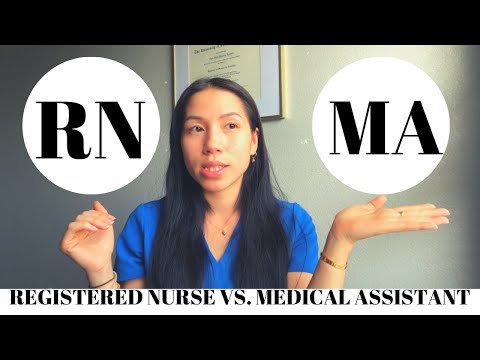Is Medical Assistance in Dying Painful?
Contents
- Introduction
- What is Medical Assistance in dying?
- The process of Medical assistance in dying
- The pain of Medical Assistance in dying
- The psychological effects of medical assistance in dying
- The benefits of medical assistance in dying
- The risks of medical assistance in dying
- The controversy surrounding medical assistance in dying
- The future of medical assistance in dying
- Conclusion
Many people have questions about medical assistance in dying (MAID), including whether or not it is a painful process. While everyone’s experience is different, in general, MAID is not considered to be a painful experience.
Checkout this video:
Introduction
Medical assistance in dying (MAID) is a very controversial topic, with people on both sides of the debate feeling very strongly about the issue. One of the main arguments against MAID is that it is a painful and undignified way to die. However, there is very little evidence to support this claim. In fact, most of the available evidence indicates that MAID is not painful and that it can be an dignified way to die.
What is Medical Assistance in dying?
Medical Assistance in dying (MAID) is when a doctor or nurse gives you a drug to end your life.
In Canada, MAID is only legal if you have a serious and incurable illness, are in an advanced state of irreversible decline in capabilities, experience unbearable suffering that cannot be relieved by any means acceptable to you, and give informed consent.
To ask for MAID, you must be 18 years or older and mentally competent to make decisions about your own health.
The process of Medical assistance in dying
Medical Assistance in dying (MAID) is a process whereby a qualified medical practitioner provides life-ending medication to a patient at their request. The process is heavily regulated in order to protect vulnerable people from making hasty decisions and to ensure that all parties involved act in good faith.
MAID must be requested by the patient and cannot be initiated by the medical practitioner. The patient must be assessed by two independent practitioners to ensure that they are of sound mind and acting freely of coercion. If MAID is approved, the patient must again confirm their request orally and in writing 48 hours before the procedure is carried out.
The actual process of MAID is usually very quick, taking only a matter of minutes. The patient is first given a sedative to help them relax, before being given a larger dose of medication which causes they heart to stop beating. Death usually occurs within a matter of minutes after administration of the second drug.
Although MAID is not considered painful, some patients may experience discomfort as the drugs take effect. For this reason, medical practitioners will sometimes administer a painkiller beforehand. Patients are also closely monitored during the procedure to ensure that they do not experience any undue distress.
The pain of Medical Assistance in dying
There is no easy answer when it comes to the pain of medical assistance in dying. The experience is highly individualized, and depends on a number of factors such as the person’s underlying condition, the medications they are taking, and their individual response to the procedure.
That said, most people who undergo medical assistance in dying report minimal to no pain. In a recent study of nearly 600 people who received medical assistance in dying in Canada, less than 4% said they experienced moderate or severe pain during the procedure.
If you are considering medical assistance in dying, be sure to discuss your concerns about pain with your healthcare team. They will be able to provide you with more information about what to expect and help you make the best decision for your individual circumstances.
The psychological effects of medical assistance in dying
There is a lack of clear consensus on the psychological effects of medical assistance in dying (MAID). Some studies have suggested that MAID may be associated with increased feelings of isolation, sadness, and anxiety, while other studies have found no evidence of negative psychological effects.
It is important to keep in mind that MAID is a highly individualized experience and that each person’s reaction will be unique. If you are considering MAID, it is important to speak with your healthcare team about any concerns you may have about the psychological effects of the procedure.
The benefits of medical assistance in dying
Medical assistance in dying (MAID) is a procedure that can be used to end a person’s life. It is also sometimes called physician-assisted death or physician-assisted suicide. MAID is only an option for people who are suffering from an incurable and irreversible disease, illness, or condition and who are in an advanced state of decline. MAID is not an option for people who are just experiencing old age or who are tired of life.
People who choose to undergo MAID usually do so because they are in a great deal of pain and they want to die with dignity. However, some people worry that MAID may be painful.
There is no need to worry about pain when it comes to MAID. The procedure is very quick and relatively painless. The person undergoing MAID will be given a sedative to help them relax before the procedure is carried out. They will also be given a drug that will stop their heart from beating. The whole process usually takes less than five minutes.
After the person has died, their family and friends can take comfort in knowing that they died quickly and without any pain.
The risks of medical assistance in dying
There are a number of risks associated with medical assistance in dying that patients and their families should be aware of before making the decision to pursue this option.
The most common complication associated with medical assistance in dying is pain. In a study of 100 cases of medical assistance in dying in the Netherlands, 23% of patients experienced moderate to severe pain during the administration of the lethal injection. In addition, 7% of patients had muscles contractions after the administration of the injection, which can cause additional pain.
Other complications that have been reported include nausea, vomiting, excessive bleeding, and paralysis. In rare cases, patients have experienced cardiac arrest or respiratory failure immediately after receiving the injection. These complications are usually quickly resolved with medical intervention and do not cause long-term harm to the patient.
It is important to note that medical assistance in dying is not always successful in producing a peaceful death. In approximately 5-10% of cases, patients have been known to wake up after receiving the injection or to experience discomfort from the muscle contractions mentioned above. For these reasons, it is important that patients and their families are prepared for the possibility that medical assistance in dying may not go as planned.
The controversy surrounding medical assistance in dying
In recent years, the topic of medical assistance in dying (MAID) has been increasingly controversial. Some people argue that MAID is a humane way to end the suffering of terminally ill patients, while others argue that MAID is a form of assisted suicide that is morally wrong.
There is currently no consensus on whether or not MAID is painful. Some medical experts argue that MAID is a quick and painless way to die, while other experts argue that MAID can be painful and stressful for both the patient and their family.
The lack of consensus on this issue makes it difficult to make a definitive statement about the painfulness of MAID. However, it is important to note that the vast majority of patients who undergo MAID do not report feeling any pain during the procedure.
The future of medical assistance in dying
Medical assistance in dying (MAID) is a controversial topic that has been making headlines recently. The Canadian government passed a law in 2016 allowing MAID, but the regulations around it are still being worked out.
One of the biggest concerns people have about MAID is whether or not it is painful. There is no easy answer to this question because everyone experiences pain differently. Some people may feel some discomfort during the procedure, but it is usually mild and can be controlled with medication.
The best way to find out if MAID is right for you is to talk to your doctor. They will be able to answer any questions you have and help you make the best decision for your individual situation.
Conclusion
After reviewing the evidence, it appears that medical assistance in dying is not associated with increased levels of pain. In fact, many patients report feeling relieved after the procedure. While there is always the potential for complications, it appears that medical assistance in dying is a safe and effective option for those who are suffering from terminal illness and seeking to end their lives.







